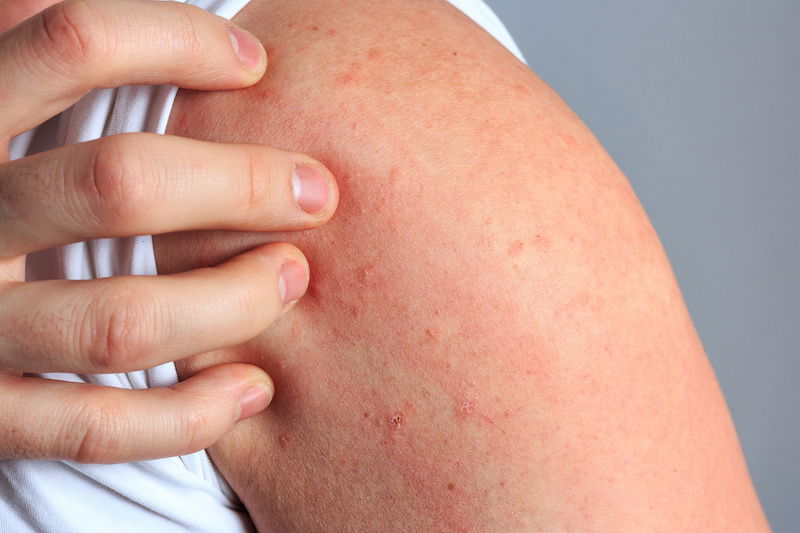Hives, also known as urticaria, are a common skin condition characterized by red, itchy welts or patches that can appear suddenly and often disappear within hours or days. While hives are usually harmless, they can be uncomfortable and distressing. Fortunately, there are several approaches to effectively treat and manage hives. In this blog post, we’ll explore various treatment options that can provide relief and help you navigate the challenges of dealing with hives.
Identify and Avoid Triggers
One of the first steps in managing hives is identifying and avoiding triggers that may be causing the outbreak. Common triggers include certain foods (such as nuts, shellfish, and dairy), medications (like antibiotics and nonsteroidal anti-inflammatory drugs), insect stings, pollen, latex, and stress. Keeping a detailed journal of your activities, diet, and exposure to potential triggers can help pinpoint the cause of your hives and aid in their prevention.
Over-the-Counter Antihistamines
Antihistamines are a go-to treatment for hives. They work by blocking the release of histamine, a chemical that contributes to allergic reactions and hives. Over-the-counter antihistamines like cetirizine, loratadine, and fexofenadine can provide relief from itching and help reduce the severity of hives. Always follow the recommended dosage and consult a healthcare professional before using any medication.
Prescription Antihistamines
For more severe or persistent hives, your doctor may prescribe stronger antihistamines. These prescription medications can provide longer-lasting relief and better control of symptoms. Be sure to discuss any existing medical conditions and potential interactions with other medications before starting prescription antihistamines.
Corticosteroids
In cases of severe hives that do not respond to antihistamines, corticosteroids may be prescribed. These medications help reduce inflammation and itching. Corticosteroids can be taken orally, applied topically, or administered as injections, depending on the severity of the hives.
Topical Treatments
Topical creams or lotions containing calamine or hydrocortisone can provide temporary relief from itching and help soothe the affected skin. These products can be applied directly to the hives and are available over the counter.
Cool Compresses
Applying cool compresses or taking cool showers can help alleviate itching and reduce inflammation associated with hives. Avoid hot water, as it can exacerbate itching and potentially worsen the condition.
Avoid Scratching
Resist the urge to scratch the hives, as this can lead to further irritation, skin damage, and potentially introduce infection. If you find it difficult to refrain from scratching, consider wearing gloves or covering the affected areas to prevent direct contact.
Natural Remedies
Some natural remedies may offer relief from hives. Oatmeal baths, aloe vera gel, and witch hazel can help soothe itching and reduce inflammation. However, it’s important to consult a healthcare professional before trying any alternative treatments, as they may not be suitable for everyone.
Stress Management
Stress can exacerbate hives in some individuals. Engaging in relaxation techniques such as deep breathing, meditation, yoga, or mindfulness can help reduce stress levels and potentially minimize the frequency of hives outbreaks.
Dealing with hives can be uncomfortable, but with the right approach, relief is attainable. By identifying triggers, utilizing over-the-counter or prescription medications, practicing good skin care, and managing stress, you can effectively manage hives and prevent future outbreaks. If your hives persist, worsen, or are accompanied by severe symptoms such as difficulty breathing or swelling of the face and lips, seek immediate medical attention. Consulting a healthcare professional is crucial for accurate diagnosis and tailored treatment to ensure you find the relief you need and deserve.
To learn more about hives and how to treat them, we invite you to contact us today at West River ENT & Allergy.




